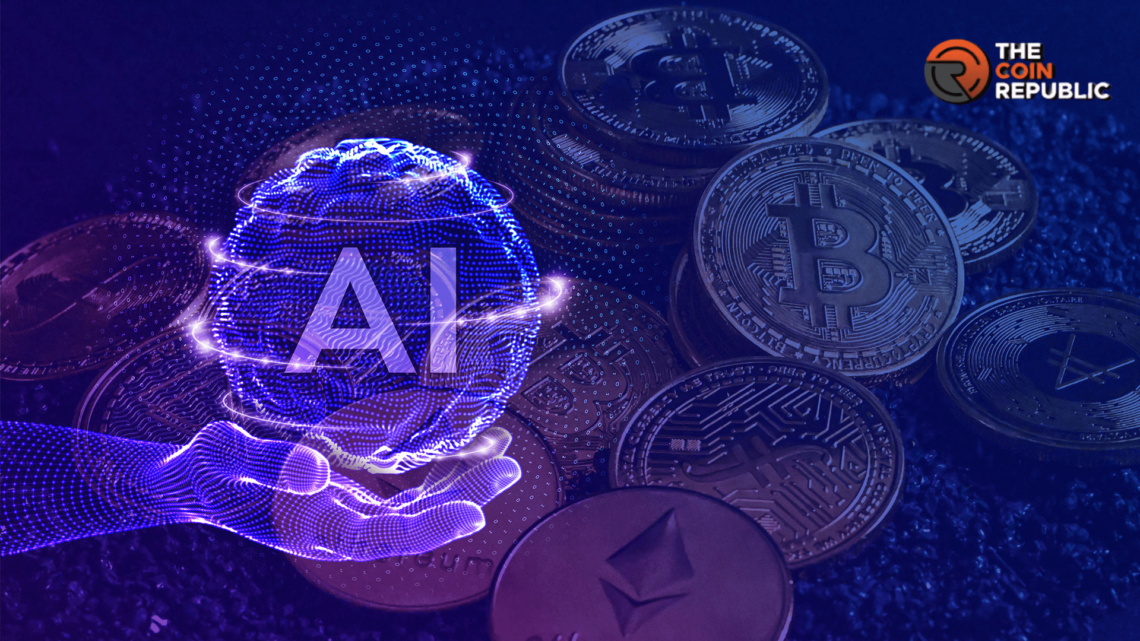- 1 Fedelity’s Marcel Stotzel tries to draw a parallel between crypto and AI.
- 2 Stotzel presses on the need to regulate artificial intelligence.
Fidelity’s European manager Marcel Stotzel says if Artificial Intelligence (AI) is not regulated in time, it can be as risky as crypto. The lack of proper regulatory infrastructure has led numerous investors to lose their hard-earned money due to events like the FTX-saga. AI also operates without the proper regulatory infrastructure, making it as risky as crypto.
AI’s Risks are Similar to Crypto, How?
Investors are excited about AI’s buzz. They almost took Nvidia Corp.’s market cap cross the Trillion dollar mark. Also, the rapid technological advancement is garnering investors’ attention and funds. But this rapid growth could backfire anytime if the regulators fail to provide guidelines.
Stotzel recalls the early days of crypto when only enthusiastic and keen investors suffered due to the lack of regulatory infrastructure. But with rapid adoption, the damages are more spread out and severe than ever. Fear of Missing Out (FOMO) pulled the masses into crypto, leading to more damage. Considering this as an example, lawmakers must start regulating AI.
With ever-increasing emphasis on curbing carbon footprints and being competitive in the market, businesses are incorporating AI. If the regulations are enacted soon, these businesses can benefit from the technology rather than face the wrong end of the sword.
Considering the ongoing climate change scenario, regulations were applied for the same. No doubt they would benefit the human race in the long run, but experts argue these regulations should have been in place decades earlier. A similar scenario can be applied to AI, there will be regulations in the future, but they should still be possible.
AI Regulations: A Problem or A Solution?
European Union is already a pioneer with its upcoming Market in Crypto Asset (MiCA) regulation surrounding cryptocurrency. MiCA is supposed to be fully applied by December 30, 2024, if all goes according to plan. They are also gearing up to regulate Artificial Intelligence technology with the proposed E.U. AI Act.
#AIAct just voted! ✅👏
— Thierry Breton (@ThierryBreton) June 14, 2023
The EU Parliament becomes the first House in the world voting on a comprehensive #AI regulation!
Today’s vote shows that we can reconcile trust and innovation 🇪🇺 pic.twitter.com/Gc3DhbIbbo
The E.U. AI Act was first proposed in April 2021, and the Council of the European Union generously adopted a “general approach” to the AI Act in December 2022. On June 14, 2023, the European Parliament voted on the AI Act. They are trying a “trialogue” approach where the European Council, the European Commission, and the European Parliament would individually work on versions of regulations that would be drafted into one.
Industry experts have doubts that the AI regulations would hamper the innovation and development of the industry. While conversely, they want a common set of standards. On July 26, 2023, OpenAI, Microsoft, Google, and Anthropic introduced a self-regulatory AI module—an attempt to have regulatory standards until the government comes up with its version.
A recent study by the enter for the governance of AI in May 2023 listed 50 safeguard practices for AI businesses, to which 98% have agreed. Like crypto, AI utilizes a lot of electricity; a study showed that ChatGPT uses enormous amounts of power and water to cool its servers to answer users’ queries.
This usage makes these AI companies worry about environmental, social, and governance (ESG) risks. Experts feel these businesses must face problems shortly if the regulations are not implemented in time.
Even a car needs safety and other certification before it is sold to customers. With AI having much more potential, the requirement for guide rails is inevitable. Additionally, big companies like Microsoft and Google have vast budgets and talent pools, allowing them to bring exciting products and services. It could lead to a monopoly-like situation, making it hard for smaller entities to enter.
Does AI Need Regulations?
Artificial Intelligence has immense possibilities, both constructive and destructive. The world needs AI regulation to filter out negative and harmful substances. On July 18, 2023, the United Nations Security Council called for a global body to regulate Artificial Intelligence.

Andrew is a blockchain developer who developed his interest in cryptocurrencies while pursuing his post-graduation major in blockchain development. He is a keen observer of details and shares his passion for writing, along with coding. His backend knowledge about blockchain helps him give a unique perspective to his writing skills, and a reliable craft at explaining the concepts such as blockchain programming, languages and token minting. He also frequently shares technical details and performance indicators of ICOs and IDOs.


 Home
Home News
News










